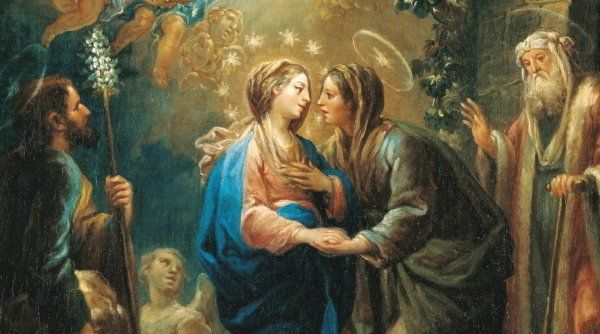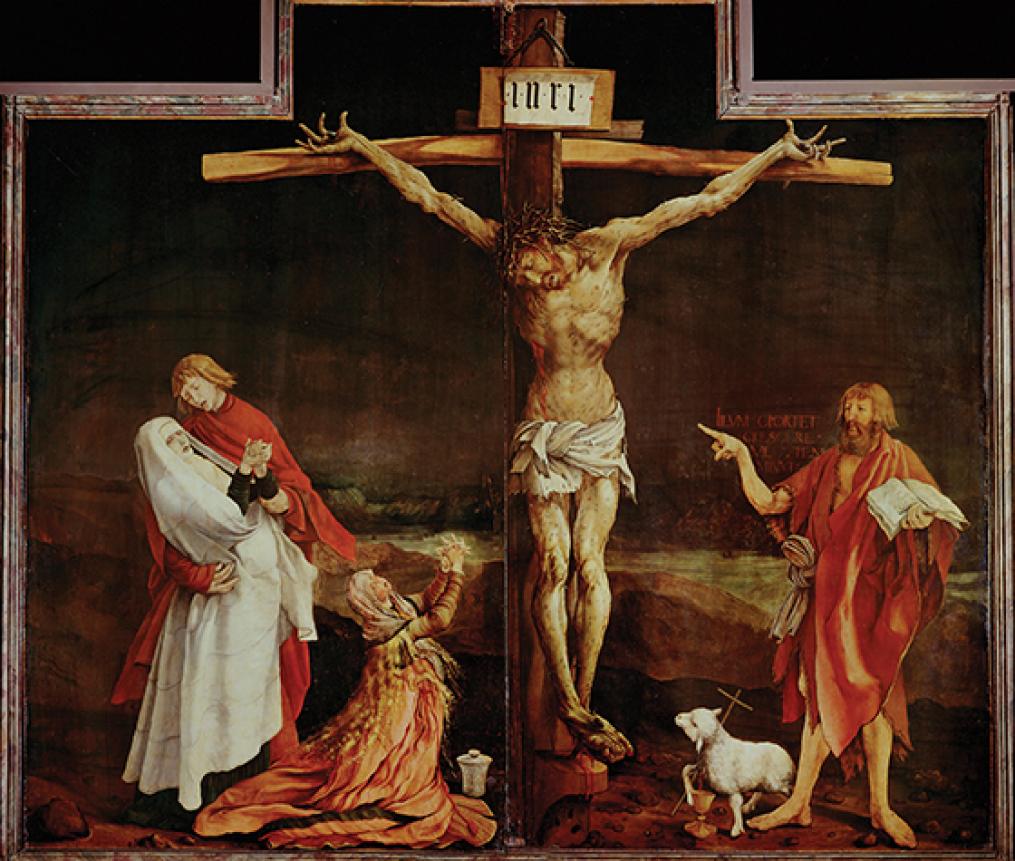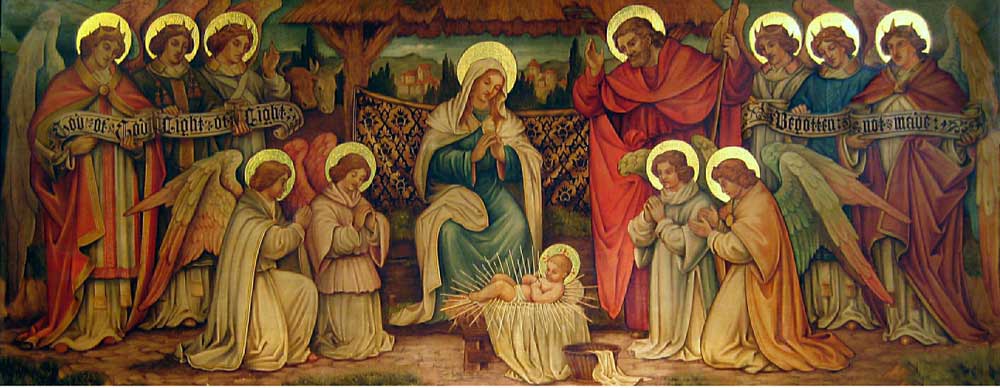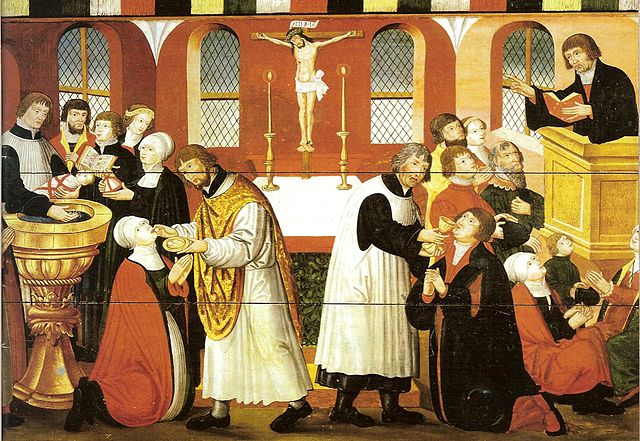Where Do You Live? (John 8:31-36)
Reformation Sunday, October 31, 2021
Grace be unto you, and peace, from God our Father, and from the Lord Jesus Christ. Amen.
Text: St. John 8:31-36, but especially these words –
Jesus said, “If you hold to my teaching, you are really my disciples. Then you will know the truth, and the truth will set you free…So if the Son sets you free, you will be free indeed.”
In the name of the Father, and of the Son, and of the Holy Spirit. Amen.
Dear Friends in Christ Jesus:
“Where do you live?” For most of us, that’s an easy question to answer. We would simply give our street address, city, state, and zip code - as our place of residence. But the question – “Where do you live, where is your home?” - has a much greater meaning than this. Where do you put the roots down for your life? Where do you find guidance and direction for living each and every day? So, the question I’m asking isn’t – where is your place of residence – but where do you place your trust and your lives? In the text for today, Jesus tells the Jews who had believed Him – “If your hold to my teaching…” – or as another translation puts it – “If you make my word your home…” – “…you are really my disciples.” By this statement, our Lord is indicating that some people live in a place other than in His Word. And so, the question is a legitimate and proper one – “Where do you live, where is your home?”
We must be aware that some people have no home for their lives. Such people simply exist. In the minds of many, life is only existing – a period of time marked by the date of birth, followed eventually by the date of death. And in between, as the commercial put it – “You grab for all the gusto you can.” That’s it for many! They believe in no god, in no meaning for their existence, and in no future after death. And our Lord was aware that many people are just like that.
In a parable, Jesus described people who were more concerned about their earthly pursuits – than they were in attending the great banquet that had been prepared for them. At the end of this parable, Christ declared – “I tell you, not one of those men who were invited will get a taste of my banquet.” In fact, in the verses preceding the text for today, our Lord spoke of those who were of this world, who would die in their sins, and be lost eternally.
But your presence here today indicates that you aren’t among those who find no meaning or purpose in life – for you are in Christ, you are Christians. However, it isn’t enough, on this our observance of the Reformation, simply to thank God for restoring the Gospel to us. We can’t just sit by complacently – while so many are missing the whole purpose and joy of living. For the Reformation didn’t end in 1517 or in 1530 – and it won’t end, as long as there are people who don’t make their home in the words of Christ. You see, the Gospel is meant to be shared with others. On our celebration of the Reformation, let’s think about those people who have no spiritual home, those people who have no answer to the question – “Where do you live?” And then, let’s resolve to get on with the real work of the church – sharing Jesus Christ with those who are spiritually homeless.
I’m sure that no one would accuse the Jews in the text for today – of being irreligious or spiritually homeless. These Jews proudly proclaimed – “We are Abraham’s descendants and have never been slaves of anyone.” And they weren’t only talking about their ancestry. They themselves thought that they had a religious home – but they didn’t find it in the words of Jesus. These Jews were indeed religious – but they certainly weren’t Christians!
“Religious or Christian.” This is the title of a book that was written a number of years ago – and it expresses an interesting division in the world. For there are many who live in the home of religion – but who don’t know the Master of this home, the Lord Jesus Christ. And I’m not speaking about those who have never heard the Gospel, but about those who are included in the membership of the Church – and yet, haven’t come to terms with their Lord. And unfortunately, this seems to be the case for far too many people. Their names are on church membership lists. They may be active in the organizations of the church. They go through the motions – and say all the right things. And many of them, like the Jews in the text for today, can claim a long line of religious ancestors. And yet, they are strangers to God.
Take a look at the end of the eighth chapter of the Gospel according to St. John, from which the text is taken. At the completion of this episode, these Jews picked up stones to kill Jesus. Obviously, their religion wasn’t very deep. It didn’t move them to love and concern. They were religious, but not Christian. And there’s a connection here with the events of the Reformation. No one would doubt for a moment that people in Martin Luther’s day were religious. They went to pilgrimages. And some even tortured their bodies in an effort to gain God’s favor.
How is it with you? Where do you live? Is Jesus Christ – the source, the meaning, and the purpose for your life – your Savior? Do you continue in fellowship with your Lord each and every day? The Gospel means nothing, the Reformation mean nothing – unless Jesus is your Lord, your Savior, and your Redeemer. Because it isn’t enough to be religious. Jesus calls you to be His people, Christians – to be people who live in His Word. Where is your home?
However, today, let’s also take a look at the positive aspects of the text – the description that our Lord gives us of the Christian faith. For the message of the Reformation is indeed a positive one – and we do Dr. Martin Luther and his fellow workers a great injustice, if we only think that they were opposed to certain practices and teachings of the church at that time. For Christianity is a process. And notice that the text emphasizes continuity. Christianity is a matter of living, remaining, and abiding in the Word of God.
Our faith isn’t only a single action, but a continuing process – one in which faith is to grow and develop. The important thing is that it’s to be a way of life. The kind of emotional thing that moves a person for a moment and then disappears – is not what faith is all about. A person who drops by our home once in a while is a visitor – not a resident at our house. And anyone can fell religious every now and then. However, the Christian faith means being a permanent resident in God’s Word – God living within us.
One of the tragic figures in the Holy Scriptures is Saul, the first king of Israel. King Saul had his moments. He was capable of real religious devotion – but it just didn’t last. Our Lord isn’t talking about this kind of religion. Even the Jews who are mentioned in the text for today – believed in Jesus for a short time, but it didn’t amount to anything.
You see, Christianity is a way of life. As a matter of fact, members of the early Christian Church called themselves followers of “the way”. They knew that our faith has to be lived. And every figure used in the Scriptures to describe the Christian faith brings this idea of living it across – born again, living stones, and seed ripening to harvest. We, as the people of God, live in His Word. Of course, there are some days that we feel closer to Christ than we do on others. But our faith is indeed a way of life – living in the words of Jesus Christ.
Truth. We can’t do justice to the words of Christ until we consider what He means by the word – “truth”. Now, truth is an interesting word. For most of us, it means a kind of statement, a doctrine, or a creed that we confess. And especially on this our observance of the Reformation, we may be inclined to think of truth in terms of doctrine – for our church came into existence because of a struggle over doctrine. But our Lord isn’t using the word in that way. Truth, also, is concerned with life – with our existence every day. Truth then is life lived according to Jesus’ direction. And our Lord tell us – “I am the way and the truth and the life.” All of these words stress living – this is what the truth is all about.
Freedom. It wasn’t the word “truth” that moved Jesus’ hearers. It was when He insisted that He could make them free. That did it! These Jews said that they had always been free. And today, I’m sure that the outcry would be even louder – as people heard the Lord say that He could make them free. For people are convinced that Christianity holds them down and surrounds them with a lot of dos and don’ts.
Jesus said, however, that we were made free to be the people of God. And God tells us that we were created in His image. It follows, then, that we are free when we do what we were created to do – to live in the Lord. We find peace and freedom – when we find the purpose and meaning of our lives in serving God. So, the question asked by the text for today is an important one – not only on this our celebration of the Reformation, but everyday of our lives – “Where do you live?” For there is only one place where we ought to live – in the words of Jesus Christ. He has shown us the only real way. He is to be the Owner of the home in which we live.
The way of sin and separation from God bring slavery and defeat. The way of religion without Christ brings frustration and despair. Only in Christ are we really free. Only in the Lord can we know and live in the truth. This is the message Jesus gave to the people of His time. This is the message of the Reformation. And it’s still the message of God to us and to all people also today. Therefore, live in the words of Christ – for as you do, you’ll know the joy and happiness of beings God’s own sons and daughters, until that time when you dwell in the heavenly Father’s mansion above – and rejoice in that freedom which will never come to an end. Amen.
The peace of God, which passes all understanding, keep your hearts and minds through Christ Jesus. Amen.








